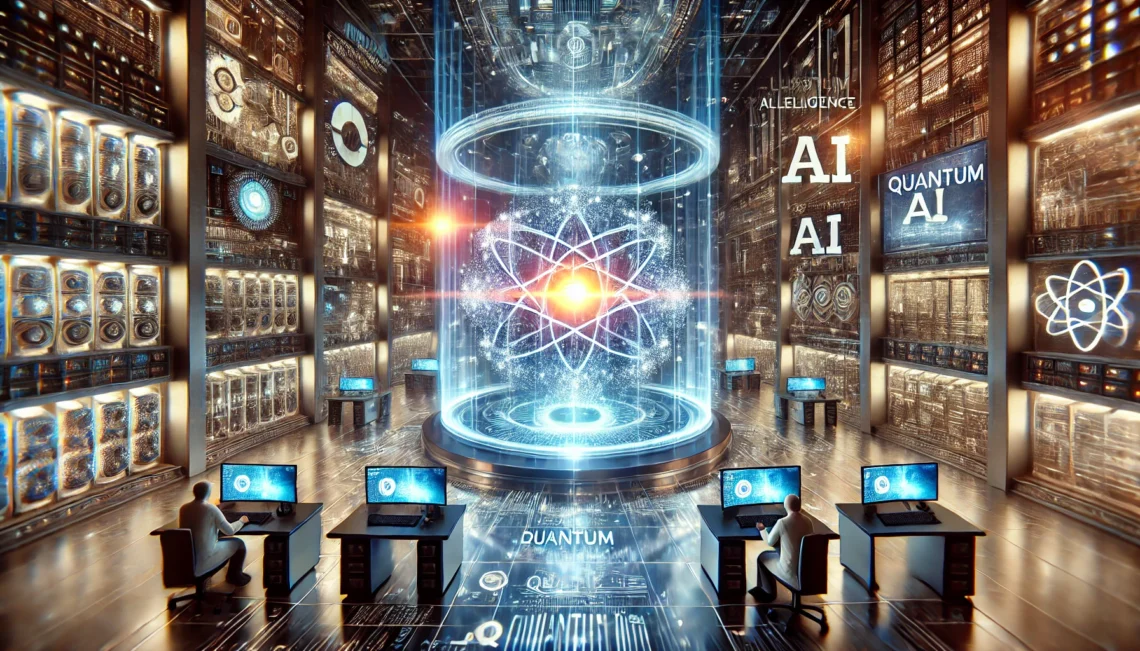Google Quantum AI: Pioneering the Future of Quantum Computing
In the race for quantum supremacy, Google Quantum AI stands at the forefront, pushing the boundaries of computational capabilities. As a division of Google dedicated to quantum computing research and development, Google Quantum AI aims to revolutionize industries by harnessing the power of quantum mechanics for solving complex problems that classical computers cannot efficiently handle.
The Vision Behind Google Quantum AI
Google Quantum AI’s primary mission is to develop scalable quantum processors and quantum algorithms that can solve real-world problems in areas such as cryptography, material science, artificial intelligence, and optimization. The team works on creating fault-tolerant quantum computers that can perform calculations far beyond the reach of conventional computing systems.
One of the key milestones achieved by Google Quantum AI was in 2019, when the company announced quantum supremacy – demonstrating that its quantum processor, Sycamore, solved a complex problem in 200 seconds, a task that would take the world’s most powerful supercomputer over 10,000 years to complete.
Google’s Quantum Computing Hardware: The Sycamore Processor
The Sycamore processor, developed by Google Quantum AI, is a 54-qubit superconducting quantum processor that leverages superposition and entanglement to perform massive parallel computations. The processor utilizes quantum gates and error correction techniques to improve stability and enhance computational power.
Key features of Sycamore include:
- High-speed quantum calculations with significant advantages over classical computers.
- Scalability potential, paving the way for more advanced quantum architectures.
- Implementation of quantum error correction to enhance reliability.
Google Quantum AI is now working on the next generation of quantum processors, aiming to achieve practical quantum advantage for real-world applications.
Applications of Google Quantum AI
Quantum computing has the potential to transform various industries, and Google Quantum AI is leading the way in several key areas:
✔ Cryptography – Quantum-resistant encryption methods to enhance cybersecurity.
✔ Artificial Intelligence – Accelerating machine learning and deep learning models.
✔ Drug Discovery & Healthcare – Simulating molecular structures for new pharmaceuticals.
✔ Optimization Problems – Solving complex logistical and financial modeling challenges.
✔ Climate Science – Enhancing weather prediction models and energy efficiency.
These breakthroughs could lead to unprecedented advancements in science, technology, and global problem-solving.
Challenges and Future Prospects
Despite its impressive progress, quantum computing faces several challenges before it can become widely accessible. Google Quantum AI is actively working on:
🔹 Quantum Error Correction – Developing techniques to reduce decoherence and improve qubit stability.
🔹 Hardware Scalability – Increasing the number of qubits while maintaining coherence.
🔹 Algorithm Optimization – Creating new quantum algorithms that outperform classical counterparts in real-world scenarios.
Google Quantum AI’s roadmap includes building a fully error-corrected quantum computer within the next decade, which could unlock previously impossible computations.
Conclusion
Google Quantum AI is at the cutting edge of quantum computing research, setting new benchmarks and paving the way for a future powered by quantum technologies. With continued progress in quantum hardware, algorithms, and error correction, Google’s efforts could redefine how we process information, solve complex problems, and shape the future of artificial intelligence.




